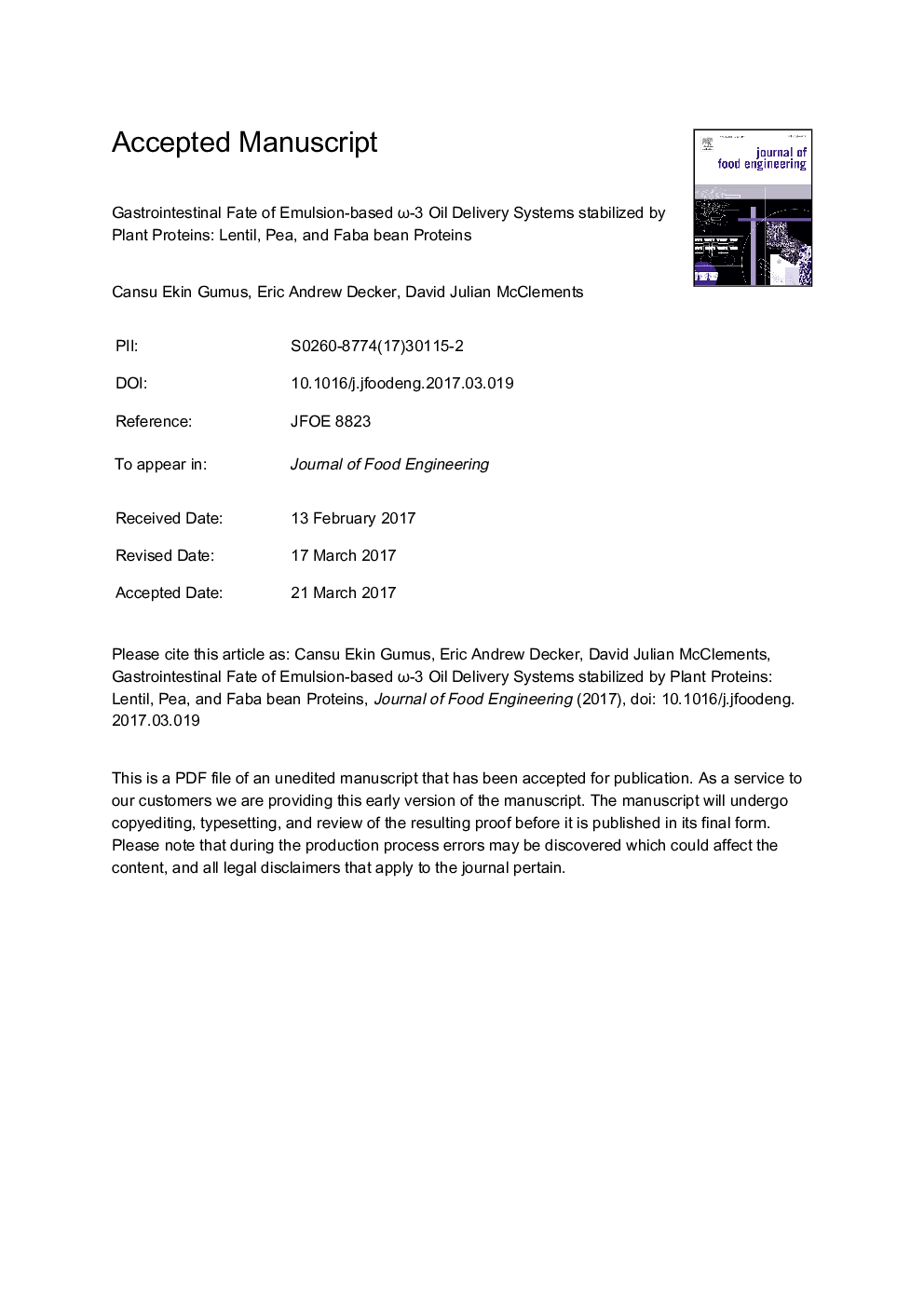| Article ID | Journal | Published Year | Pages | File Type |
|---|---|---|---|---|
| 4909118 | Journal of Food Engineering | 2017 | 24 Pages |
Abstract
Functional foods are being fortified with bioactive lipids to improve human health. The formulation of these products from plant-based ingredients, rather than synthetic or animal-based ones, is often preferred by consumers. However, there is concern that encapsulation of bioactive lipids using plant-based ingredients may decrease their oral bioavailability. The aim of this study was to provide an understanding of the impact of plant-protein coatings on the gastrointestinal fate of omega-3 (Ï-3) oil droplets. A simulated gastrointestinal tract (GIT), including mouth, stomach and small intestine stages, was used to compare the gastrointestinal fate of lipid droplets coated by plant proteins (lentil, pea, faba bean proteins) with those coated by an animal protein (whey protein). All the emulsions behaved fairly similarly in the GIT model: the droplets were highly negative in the mouth and small intestine, but slightly positive in the stomach; extensive droplet aggregation occurred in the mouth and stomach; the droplets were digested in the small intestine. No significant differences in free fatty acids released in the small intestine were observed among the different systems, suggesting plant proteins did not inhibit lipid digestion and release.
Keywords
Related Topics
Physical Sciences and Engineering
Chemical Engineering
Chemical Engineering (General)
Authors
Cansu Ekin Gumus, Eric Andrew Decker, David Julian McClements,
